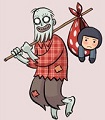 |
| Member |
 |
Joined: Sep 23, 2013
Posts: 6317
Location: New York
|
I've been working on novels for awhile now. It's exciting because it's a new form for me, specifically in that I focused on poetry for about 15 years and for the last 4 have been focusing exclusively on novels. I've written three, each with a varying degree of success, each of which was requested by numerous agents, only to be rejected at the end. Rather than let this drag me down, I let it spur me to learn more about the form, read up on it, join workshops and writing groups, network with other writers, etc. I'm reaching the end of my studies, but I wanted to talk a bit about what I've learned recently, and how it applies to a novel's structure. (Specifically a 3-Act Structure)
First and foremost, before you write a novel--or any scene, actually--you have to establish the MGDs of the scene. The MGDs of the scene are the Mutually Exclusive Goals... basically the thing the protagonist wants and the person/thing that is either preventing him, or wants the opposite. Every single scene should have MGDs, and usually there should be more than one. There are external MGDs, which focus on tangible objects, actions, etc. And there are internal MGDs, which focus on character growth. Chances are if you have a scene that isn't working, it's likely because you have weak MGDs.
On to my break down of the 3-Act Structure
Act 1
1. Your protagonist and their world
a) Introduce protagonist
b) Introduce the thing motivating your protagonist (to get the girl, win the race, become a hero)
c) Introduce the internal conflict inhibiting your protagonist (fear of leaving home, of injury/loss, of losing security)
2. The Catalyst
a) The thing that forces the character to go on an adventure (a disaster, a mission, a love interest)
b) The doubt that comes with a threat of change
c) The decision to go on the adventure
Act 2
3. The Adventure Begins
a) Introduce something in the adventure that shows the character is in the adventure/a whole new world
b) The character moves here from being reactive in Act 1 to being proactive
c) The new world and the character's choices become the vehicles for the plot
4. The Antagonist
a) But the new world is scary, and there are forces out to defeat the protagonist
b) These forces diametrically oppose the character's external goal
c) They must show the new world is scary and has risks
5. The Fun Stuff
a) The character grows externally; they become stronger, go on adventures, meet companions
b) One of those companions will teach the protagonist to overcome their internal weakness
6. The Middle of the Novel
a) The characters seem to be on a roll; they think they have what they need, they look like they're on track
b) Alternatively, the characters think they have won, and in fact they've only made things worse
c) By the middle of the novel, if there was any hope of turning back, now there absolutely is not
7. Things Get Worse
a) The joy of the adventure and new world vanishes
b) The antagonist, who has been absent during the character's external growth, reappears
c) The character fights and loses; they realize they are not strong enough
8. Things Get Even Worse
a) Someone the character loves dies; all hope is lost
b) The external goal seems farther than ever
c) The character's internal conflict comes to the front and...
9. Wallowing
a) The character has no plan, no power, nothing
b) But then that companion character comes back and helps the protagonist do what they need to do to overcome their internal conflict
c) Suddenly there's a plan of action, a light in the overwhelming darkness
Act 3
10. Climax
a) The characters do what they need to do to implement their plan
b) Things don't work out the way they should
c) The antagonist seems insurmountable
11. Finale
a) The characters' and the protagonist doesn't work out well
b) But the persevere, and through overcoming the internal conflict the character defeats the antagonist
c) The antagonist is defeated and the heroes celebrate
12. The End
a) The characters say goodbye and return home
b) The protagonist reflects for a moment, and measures their new self against the person they were when the adventure started
---
Novels, in general, have about 70-100 scenes, so this roadmap is a little too compact to be copies exactly. But if you plot out these points and have MGDs in your scenes, you're likely one step closer to finishing a novel!
_________________
|
|



